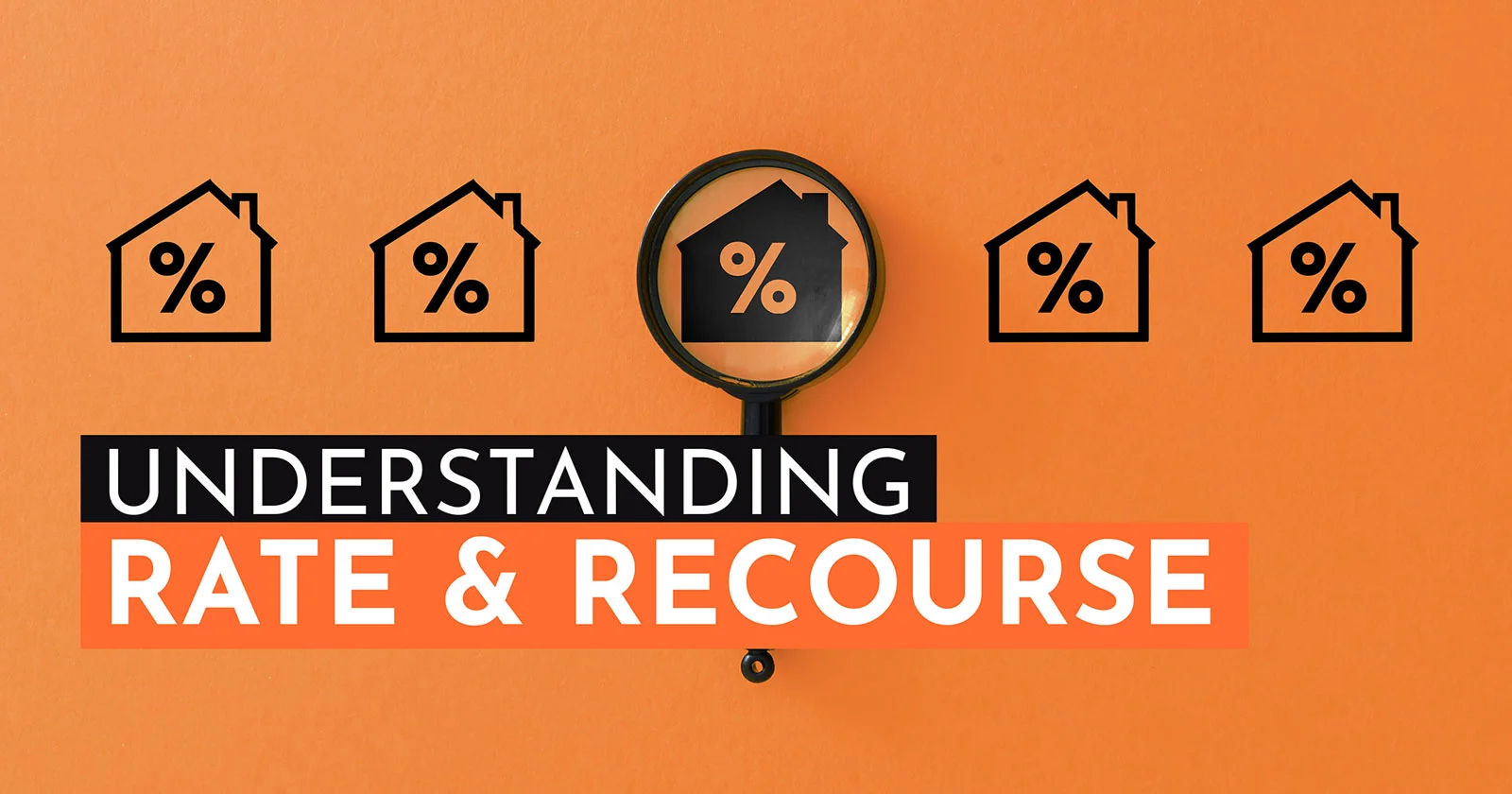In September, the Federal Reserve (Fed) reduced real estate interest rates for the first time since 2020. This includes investment property rates, falling from 6.5% down to 4.99% (now at 5.4%). The Fed anticipates rates to continue to drop, with Summary of Economic Projections (SEP) below 3.375% by the end of 2025. However, interest rates depend on several economic factors and are difficult to forecast.
With recent fluctuations and the hopes of lower rates on the horizon, many long-term investors are wondering if it’s a good time to refinance their rental property.
Below, we’ll discuss the best times to refinance an investment property, things to consider before refinancing, and tips to simplify the property refinancing process:
With recent fluctuations and the hopes of lower rates on the horizon, many long-term investors are wondering if it’s a good time to refinance their rental property.
Below, we’ll discuss the best times to refinance an investment property, things to consider before refinancing, and tips to simplify the property refinancing process:
When is a Good Time for a Property Refinance?
As an investor, the move to refinance your rental property can generate several personal and business advantages, including:
But with so many unknowns and variables to consider, when is a good time for a property refinance? Let’s look at three scenarios when refinancing your investment property is the right choice:
- An increased cash flow
- Portfolio growth and diversity
- Access to lower interest rates
But with so many unknowns and variables to consider, when is a good time for a property refinance? Let’s look at three scenarios when refinancing your investment property is the right choice:
Reduced Investment Property Rates
Recent rate reductions would indicate a favorable time to refinance your current mortgage rates on your rental property. Refinancing during lower interest rates can help you significantly reduce your monthly and annual costs. Just a 0.25% decrease in rate can save you around $240 per year.
Cash-out Refinance to Enhance or Improve Business
We often think of homeowners using a cash-out refinance on a paid-off house or first mortgage to access cash quickly for emergencies. However, investors can use a cash-out refinance on a rental property in a more strategic, business-driven way–especially while home appreciation values continue to grow (5.5% on average).
From an investment standpoint, you can leverage additional capital from refinancing your investment property to improve or expand your business by:
One way to access better interest rates on investment loans is with a great credit score. While paying off personal or business debt through a cash-out refinance on your rental property is less exciting, it will improve your credit. This can better position your business for future investments.
From an investment standpoint, you can leverage additional capital from refinancing your investment property to improve or expand your business by:
- Paying Off Your Original Loan: When interest rates dip, it is an opportune time to refinance, using part of your new loan to pay off the original loan. This also allows you to lock in at a lower interest rate and have additional money on hand to reinvest into new properties, enhance your current investment, or pay off personal debt.
- Reinvesting in Your Portfolio: If you’re looking to scale your business, you can use the additional money from a cash-out refinance to reinvest in new properties–expanding your portfolio and income streams.
- Enhancing Your Current Property: The funds gained through refinancing your investment property can go right back into that property. By using the additional cash on hand to install new appliances, add an ADU unit, or any other house renovations that skyrocket property values, you can enhance the appeal and rental income potential of your current property.
- Paying Off Debts: When it comes to investment loans vs. home loans, you’re more likely to pay higher rates for an investment loan. In the eyes of lenders, a rental investment loan has more risk because repayment is often dependent on the success of the rental property.
One way to access better interest rates on investment loans is with a great credit score. While paying off personal or business debt through a cash-out refinance on your rental property is less exciting, it will improve your credit. This can better position your business for future investments.
Decrease Loan Terms
It’s no secret, the longer the term life of a loan, the more you’ll pay in interest. While most long-term investment loans begin with 30-year terms, investors who meet or exceed financial expectations early on can refinance their investment property to decrease the length of the loan.
With current investment property refinance rates down over 1%, this approach can help you save significantly on your interest costs over time. For context, by reducing a 30-year term to 20 years at the same 4.0% interest rate, you would yield a savings of nearly $40,000 in interest over the loan’s lifespan.
With current investment property refinance rates down over 1%, this approach can help you save significantly on your interest costs over time. For context, by reducing a 30-year term to 20 years at the same 4.0% interest rate, you would yield a savings of nearly $40,000 in interest over the loan’s lifespan.
Things to Consider Before Refinancing Your Investment Property
With the right circumstances, refinancing your investment property is a great opportunity to grow and improve your business. However, there are a few aspects of refinancing to consider beforehand. Educating yourself on rental property refinancing loan requirements, costs, tax implications, and amortization will help determine if it is the right choice for you.
- Refinance Loan Requirements: The steps and requirements to refinance an investment property are often more strict. As the borrower, you must maintain a good credit score (660 or above), show proof of income history, and have a lower loan-to-value (LTV) ratio for the loan.
- Closing Costs: Refinancing creates a new round of closing costs. These costs are often overlooked by borrowers because they are rolled into the loan principal. However, at 2% of the loan amount on average, a new round of closing costs can end up costing you several thousands of dollars.
- Tax Implications: Yes, refinancing your rental property has some tax implications. While the money you receive is not taxable, it is not eligible for any mortgage interest deductions if it is used for anything other than buying, building, or improving the sustainability of an investment property.
- Amortization Schedule Reset: By refinancing your investment property, you reset the amortization schedule, meaning the majority of your payments go to paying down the interest on the principal to start.
Tips to Simplify Refinancing Your Rental Property
To make the refinancing process as painless and beneficial as possible, investors should look to have each of the following:
In most cases, to streamline the process and ensure you have the best chance at lower rates, it’s best to work closely with a trusted and knowledgeable lender to refinance your investment property.
- A credit score of at least 660
- Fully occupied units
- Tenants with existing long-term (6+ months) leases
- The property in good condition and within regulatory requirement standards
- Copies of the last two years of tax returns, tenant leases, rent roll, income statements, and capital expenses
In most cases, to streamline the process and ensure you have the best chance at lower rates, it’s best to work closely with a trusted and knowledgeable lender to refinance your investment property.
CIVIC: Helping You Make the Right Choice
CIVIC has been helping long-term rental investors enhance and grow their business through strategic business financing, planning, and execution. With flexible financing terms, rates, refinancing, and cash-out loan options, our experts can mix, match, and tailor financing to your unique needs.
CIVIC’s Rental Portfolio and Rental loan options offer:
Whether you’re looking to embark on a new rental investment project or looking to refinance your rental property, our team has the knowledge, skills, and capital to help you succeed. CLICK HERE to schedule a FREE consultation with a CIVIC expert today!
CIVIC’s Rental Portfolio and Rental loan options offer:
- Competitive 30-year term loan options
- DSCR with no W2s, paystubs, or tax returns required
- SFR, warrantable cons, townhomes, PUD, and 2-4 units eligibility
Whether you’re looking to embark on a new rental investment project or looking to refinance your rental property, our team has the knowledge, skills, and capital to help you succeed. CLICK HERE to schedule a FREE consultation with a CIVIC expert today!




